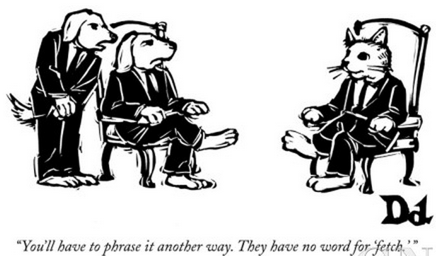Hong Kong interlingual contrast
John Brewer noted the palpable irony between two quotations in this article from today's NYT: "7 Hong Kong Police Officers Arrested in Beating of Protester"(11/26/14)
Read the rest of this entry »
John Brewer noted the palpable irony between two quotations in this article from today's NYT: "7 Hong Kong Police Officers Arrested in Beating of Protester"(11/26/14)
Read the rest of this entry »
Goods and services for senior citizens are a big business in China. In general, the manufacture and marketing of such products go by the designation lǎolíng chǎnyè 老龄产业. But, oh, how to render that in English?
Read the rest of this entry »
 Several manifestations of verbal and visual class warfare have recently hit the mass media in Britain. The subtlest example, least transparent to outsiders, is the affair of the white van in Rochester — William James, "In class obsessed Britain, tweet of 'white van' man hits nerve", Reuters 11/21/2014:
Several manifestations of verbal and visual class warfare have recently hit the mass media in Britain. The subtlest example, least transparent to outsiders, is the affair of the white van in Rochester — William James, "In class obsessed Britain, tweet of 'white van' man hits nerve", Reuters 11/21/2014:
Posting a picture on Twitter of a two-storey house, displaying three English flags of St. George and with a white tradesman's van outside, might seem innocuous to a foreign eye.
Read the rest of this entry »
By Drew Dernavich, originally published August 20, 2007, a cartoon addition to our No Word for X archive:

Or, to put it another way: "They have no words for anything, but they have no concept for 'fetch'."
[h/t Joan M.]
Macaulay Curtis writes: "This one isn't a headline, but it is mightily hard to parse. From a construction site in Brisbane, Australia. I walked past it in confusion every day for a week before realising that the company is called 'Built'…"
Read the rest of this entry »
Tim Leonard sends in "one for your hard-to-parse-headlines file": Tim Worstall, "The EU's Very Bad Turn $26 Billion Into $390 Billion Investment Plan", Forbes 11/23/2014. Tim observes that it's "not really a garden path, since it hits a dead end less than half way in".
Read the rest of this entry »
This is an interesting question raised by the Writing Chinese project at Leeds. Helen Wang mentioned it to me in the hope that I might be willing to share my thoughts. I'll do Helen one better and share this with many others, in hopes that they too may be willing to share their thoughts.
Read the rest of this entry »
What would you think if you encountered terms like this?
Two-oriented Society
Three-zation / Threezation
You might wonder if the people who dreamed them up were high on something when they produced these opaque, unidiomatic renderings. Yet such terms are official translations of Chinese expressions. As such, they have entered the stream of global English.
Read the rest of this entry »
Below is a guest post by Marc van Oostendorp, who will be teaching "Miracles of Human Language: An Introduction to Linguistics" on Coursera, 3/30/2015-5/10/2015.
Read the rest of this entry »
A visitor from another galaxy, or perhaps just from another century, would notice that civilized people these days are obsessed with the rate of vocabulary display as a symbol of social status. The latest symptom of this obsession is Matt Daniels, "The Largest Vocabulary in Hip Hop", May 2014:
Literary elites love to rep Shakespeare’s vocabulary: across his entire corpus, he uses 28,829 words, suggesting he knew over 100,000 words and arguably had the largest vocabulary, ever.
I decided to compare this data point against the most famous artists in hip hop. I used each artist’s first 35,000 lyrics. That way, prolific artists, such as Jay-Z, could be compared to newer artists, such as Drake.
Read the rest of this entry »
Don Seiffert, "Is it a drug, or is it a Pokemon?", bioflash 11/18/2014:
It was while trying to straighten up my 10-year-old son's room that I hit upon the answer to the age-old question of where do they come up with the names of new drugs.
The answer: It's got to be the same people who come up with the names of new Pokemon characters.
Read the rest of this entry »
Bob Ladd points out that a commenter ("RobbieLePop") on a Guardian article about Prince Charles (the opinionated prince who is destined to inherit the throne under Britain's hereditary monarchical and theocratic system of government) said this:
The moment the Monarchy, with he at its head, begins a campaign of public influence is the moment the Monarchy should be disbanded.
With he at its head ? Let's face it, the traditionally accepted rules for case-marking pronouns in English are simply a mystery to many speakers.
Read the rest of this entry »
Permalink Comments off